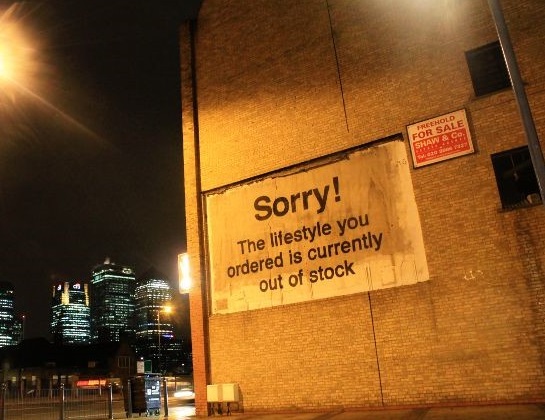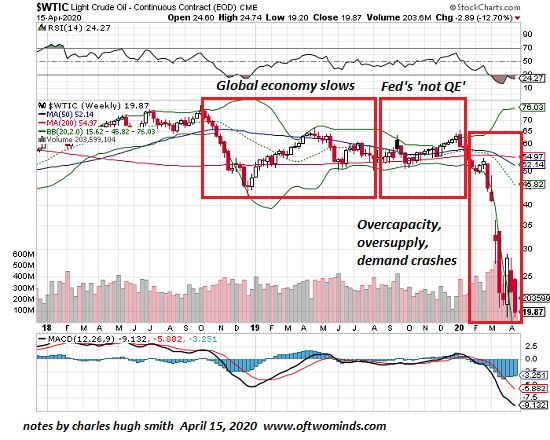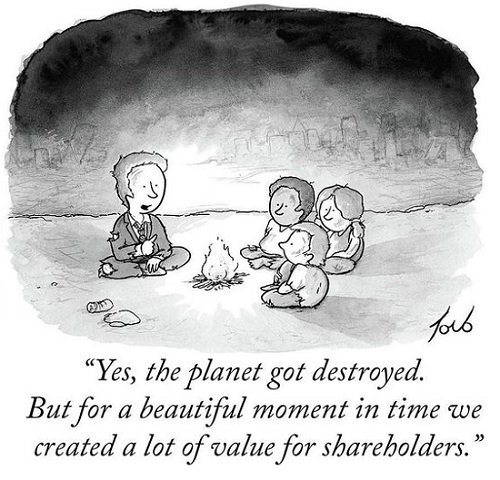Everything, including a rational, connected-to-reality, effective financial system, is on back-order and unlikely to ship any time soon. While the stock market euphorically front-runs the Fed and a V-shaped recovery, the reality is the crash has only just begun. To understand why, look at income and debt. Income–earned and unearned–is in free-fall, while debt–which must be serviced by income–is exploding higher. Bailouts are not a permanent substitute for income. In the short-term, bailouts–in the form of payments to everyone who’s lost their source of earned income, i.e. their job–is a necessary substitute for lost income. But longer term, subsidizing income with borrowed money weakens the currency and the economy, as productivity stagnates. As for servicing
Topics:
Charles Hugh Smith considers the following as important: 5.) Charles Hugh Smith, 5) Global Macro, Featured, newsletter
This could be interesting, too:
Nachrichten Ticker - www.finanzen.ch writes Die Performance der Kryptowährungen in KW 9: Das hat sich bei Bitcoin, Ether & Co. getan
Nachrichten Ticker - www.finanzen.ch writes Wer verbirgt sich hinter der Ethereum-Technologie?
Martin Hartmann writes Eine Analyse nach den Lehren von Milton Friedman
Marc Chandler writes March 2025 Monthly
 Everything, including a rational, connected-to-reality, effective financial system, is on back-order and unlikely to ship any time soon.
Everything, including a rational, connected-to-reality, effective financial system, is on back-order and unlikely to ship any time soon.
While the stock market euphorically front-runs the Fed and a V-shaped recovery, the reality is the crash has only just begun. To understand why, look at income and debt. Income–earned and unearned–is in free-fall, while debt–which must be serviced by income–is exploding higher.
Bailouts are not a permanent substitute for income. In the short-term, bailouts–in the form of payments to everyone who’s lost their source of earned income, i.e. their job–is a necessary substitute for lost income. But longer term, subsidizing income with borrowed money weakens the currency and the economy, as productivity stagnates.
As for servicing debt–the unemployed working class is getting an extra $600 a week not out of kindness but to make sure these households can continue to service their debts: auto and truck loans, student loans, credit cards, etc. Absent a federal bailout, millions of unemployed would cease making loan payments, creating a financial crisis for lenders.
Investment income is also crashing as companies slash dividends and stock market gains dry up. Oil exporters are facing a $1.2 trillion cut in annual income, and institutional property owners are facing steep declines as tenants stop paying rent and structural declines in employment will pressure rents lower in housing and commercial properties.
As the housing market implodes, capital gains from flipping houses will also collapse. As Corporate America realizes it no longer needs vast office spaces for its (reduced) workforce as millions are working from home, the demand for commercial properties will fall off a cliff, and the rental income generated by commercial property will also fall off a cliff.
Even if interest rates fall to zero, the interest paid by borrowers will not be zero. But even if borrowers get very low rates, they still have to make the monthly principal payments, which can each run into the hundreds of dollars. Lowering interest rates doesn’t reduce the principal payments or reduce the interest due to zero. Indeed, the student loan and credit card rackets are experts at sucking borrowers dry with late fees and much higher rates than initially advertised.
Capital isn’t flowing into productive investments; it’s front-running the Federal Reserve’s free money for financiers in grossly overvalued stocks and seeking “dead money” safe havens.
The money that’s being sent to unemployed workers is borrowed, and small businesses are being offered loans, much of which will be forgiven if the funds are used to pay wages. In other words, all of these trillions of dollars being substituted for earned income are borrowed, and with capital going to grossly overvalued Big Tech stocks and “dead money” safe havens, there are no capital flows which will support a return to commerce and productivity that will pay wages or generate investment income (unearned income).
Bulls can argue that “this time it’s different,” that debt doesn’t matter and earnings don’t matter, but where is the history to support their claim that capital flowing into overvalued stocks is going to generate earned income that can service the exploding debt load?
The crash has only just begun. Everything, including a rational, connected-to-reality, effective financial system, is on back-order and unlikely to ship any time soon.
Tags: Featured,newsletter






